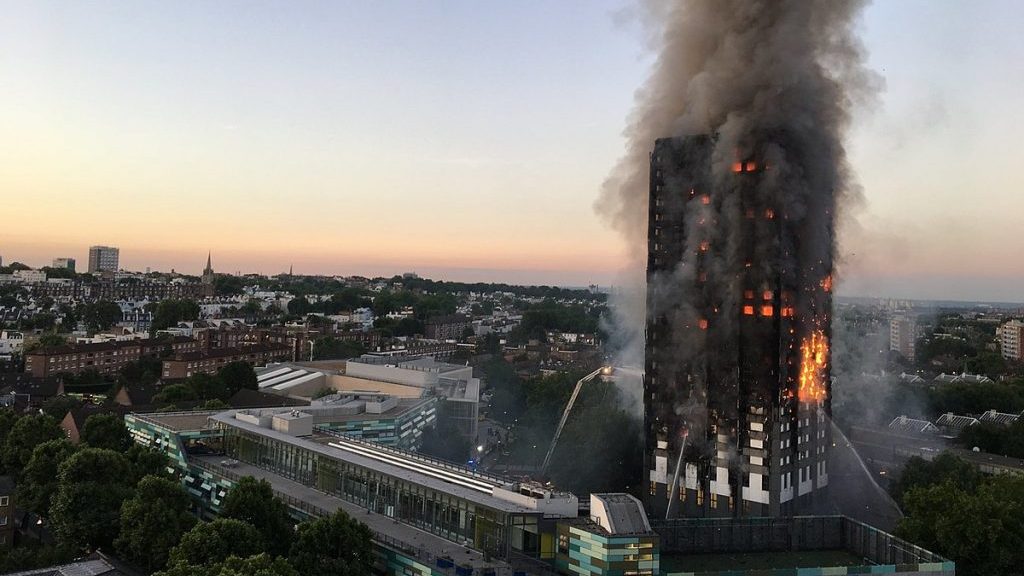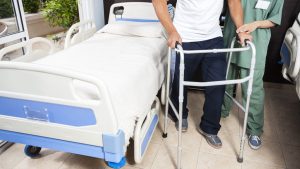LONDON – Now that an independent inquiry has completed its investigation into Britain’s deadliest residential fire since World War II, survivors and bereaved relatives are demanding that criminal charges be brought against those responsible for the 2017 blaze that killed 72 people.
The Grenfell Tower inquiry released its final report on Wednesday, a 1,700-page document that detailed how the failings of government, the construction industry and firefighters led to the deaths at a high-rise apartment building in west London more than seven years ago. The disaster was entirely avoidable, it said.
That finally clears the way for law enforcement authorities to complete the criminal investigation, which was put on hold to ensure it didn’t impede efforts to uncover the underlying causes of the tragedy and recommend measures to prevent future disasters.
“We need to see the culprits … be judged to recognize their faults, their mistakes, their incompetence. All this we need to know,’’ Karim Khalloufi, the brother of fire victim Khadija Khalloufi, told the BBC. “And without this justice, we will keep going on. We will keep seeking … justice.”
But justice won’t be swift.
London’s Metropolitan Police Service says officers probably won’t complete their investigation until the end of next year. Their findings will be passed on to the Crown Prosecution Service, which says it isn’t likely to announce any charges until the end of 2026.
“Due to the sheer volume of evidence and complexity of the investigation, we will need to take the necessary time to thoroughly evaluate the evidence before providing final charging decisions,” Frank Ferguson, head of the CPS’s special crime and counter terrorism division, said in a statement.
The report published Wednesday underscores that complexity.
The fact-finding inquiry began soon after the fire at Grenfell Tower, which broke out in the early morning hours of June 14, 2017, and quickly engulfed the 25-story public housing block. The inquiry received testimony from more than 1,500 witnesses and reviewed some 300,000 documents before delivering its final report.
Separate from the inquiry, police are investigating 58 suspects and 19 companies or organizations for possible criminal charges, including corporate manslaughter, gross negligence, fraud, and misconduct in public office, the Sunday Times reported this week.
Police spent 415 days removing evidence from the tower, with that evidence now housed in a warehouse that is big enough for 25 double-decker buses, the newspaper said.
London Mayor Sadiq Khan supported the survivors’ calls for justice.
“Those responsible must now be immediately held to account for their systematic dishonesty, corporate greed, institutional indifference and neglect,” Khan said. “Companies found to have been to blame by the inquiry must no longer receive any public contracts, as the police and CPS look into the bringing of criminal charges.”
Prime Minister Keir Starmer also pledged to take action against the companies named in the report.
“I can tell the house today that this government will write to all companies found by the inquiry to be part of these horrific failings as the first step to stopping them being awarded government contracts,” he said in Parliament Wednesday.
Putting the report’s recommendations into place will also take time.
Starmer said his government will consider all of the inquiry’s 58 recommendations and respond in full within six months.
But Starmer said he would take immediate action to speed up the removal of flammable external cladding, which the inquiry identified as the primary reason the Grenfell Tower fire spread so rapidly, trapping residents in their homes.
Although the government has ordered building owners to remove dangerous cladding from all medium- and high-rise residential buildings, progress has been slowed by squabbles over who should pay for the work.
Government figures released at the end of July showed that there were still some 2,300 residential buildings over 11 meters (36 feet) in height where work to remove dangerous cladding hadn’t yet begun.
“There are still buildings today with unsafe cladding, and the speed that this is being addressed is far, far too slow,” Starmer told the House of Commons. “So this must be a moment for change. We will take the necessary steps to speed this up.”
©2024 THE ASSOCIATED PRESS





Recent Comments
comments for this post are closed